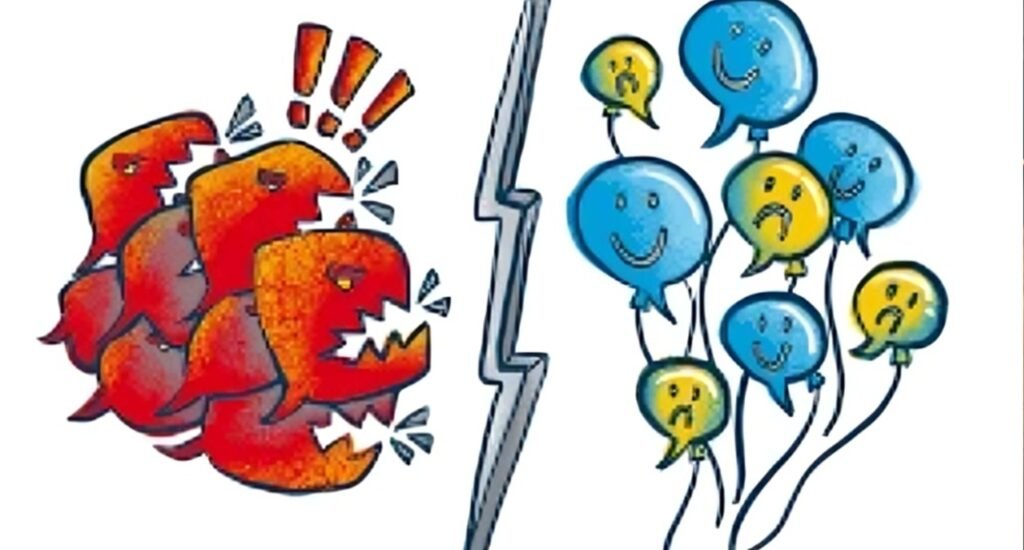Free Speech vs. Hate Speech
- Fahad Bin Khalid
- December 19, 2024
- 2:16 pm
- 38
- Trending

Free speech vs. hate speech is a critical debate that shapes our society and democracy. While free speech empowers individuals to share ideas and promote dialogue, hate speech threatens societal harmony and personal dignity. Understanding the distinction between these two forms of expression is essential for a thriving democracy.
The Power of Free Speech in Democracy
Free speech stands as a cornerstone of democracy. It allows people to express ideas, challenge norms, and foster progress. Open dialogue creates diversity of thought, which strengthens societies. Freedom of expression encourages debates that drive innovation and promote understanding across different communities.
However, this freedom comes with responsibility. Words carry immense power, and their misuse can lead to harmful consequences. When free speech turns into hate speech, it ceases to serve democracy and begins to erode its foundation.
Understanding Hate Speech
Hate speech targets vulnerable groups with words that incite discrimination, violence, or hostility. Unlike free speech, it aims to dehumanize and harm others, often leading to serious consequences. Research reveals that areas with normalized hate speech see a sharp rise in hate crimes. For instance, the Anti-Defamation League observed a 30% increase in hate incidents in regions where extremist rhetoric was prevalent.
Unchecked hate speech undermines equality and justice. It creates fear, sows division, and weakens the very fabric of a democratic society. Speech that promotes hatred is not an exercise of freedom—it is an attack on the values of democracy.
Why Limits on Hate Speech Are Necessary
Critics of hate speech regulations often argue that such laws lead to censorship. However, the goal of limiting hate speech is not to silence dissenting voices but to prevent harm. The U.S. Supreme Court case Brandenburg v. Ohio established that speech inciting imminent violence is not protected under the First Amendment. This ruling emphasizes the importance of balancing freedom with accountability.
Unchecked hate speech has real-world consequences. According to a United Nations report, hate speech has preceded violence in 70% of modern conflicts. When hateful rhetoric becomes normalized, it paves the way for actions that harm individuals and communities.
Words Have the Power to Build or Destroy
As citizens, we must recognize the responsibility that comes with freedom of expression. Words can inspire hope or fuel hatred. They can unite people or divide communities. A healthy democracy values both open dialogue and the dignity of its members.
Freedom of speech should not come at the cost of someone’s right to live free from fear. Responsible speech uplifts and strengthens societies, while hate speech weakens them.
A Call for Responsible Expression
Knowing the difference between free speech vs. hate speech is important. Let’s move beyond the myth that hate speech is a necessary part of freedom. Instead, let us imagine a future where every voice contributes to building a better society. By choosing words that inspire and unite, we uphold the ideals of democracy.
Words matter. Let’s use them wisely—to build, not break.



